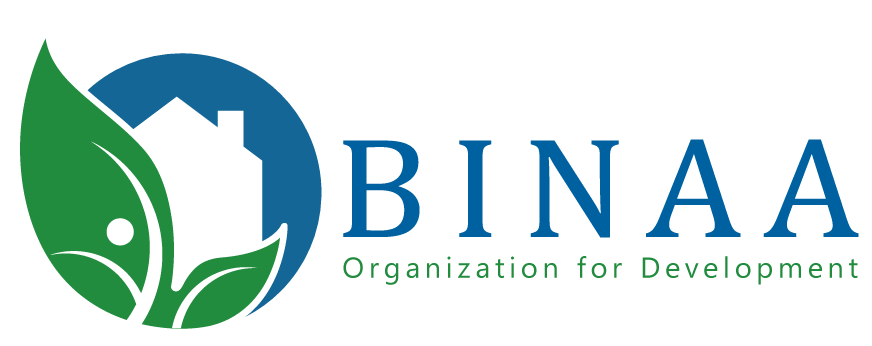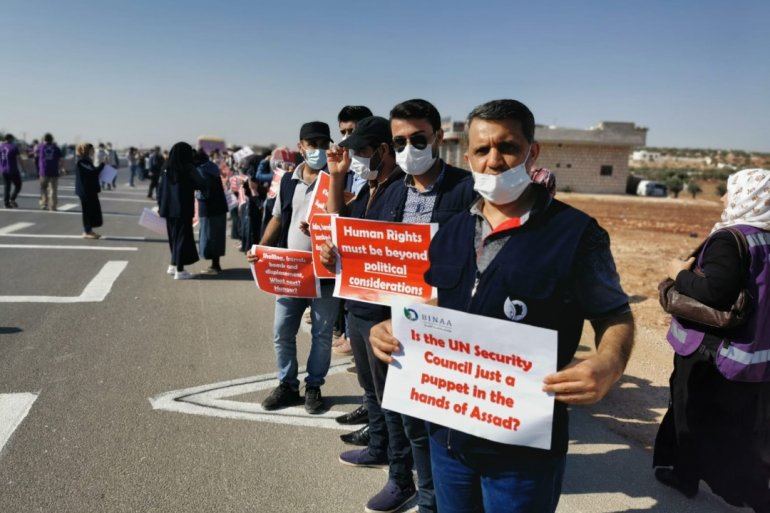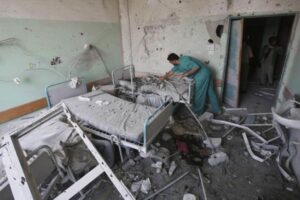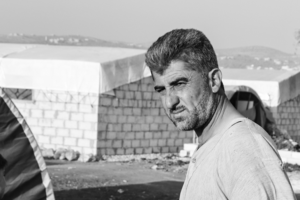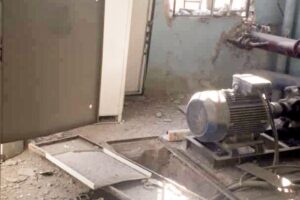WORKERS OF BINAA FOR DEVELOPMENT PARTICIPATE IN A PROTEST AGAINST THE POSSIBLE CLOSING OF THE BAB AL-HAWA CROSSING IN THE FACE OF HUMANITARIAN AID
54 Humanitarian Organizations Form A Human Chain In Northern Syria To Protest Russia’s Attempts To Close The Border Crossing
The Protest Was Organized By Dozens Of Humanitarian Organizations Operating Inside Syria, Against The Possible Ending Of An International Agreement That Allows The Flow Of Humanitarian Aid Into Syria Through The Bab Al-Hawa Crossing On The Syrian-Turkish Border
Humanitarian workers from Binaa for Development participated today in a protest organized by dozens of organizations operating inside Syria against the possible ending of an international agreement that allows the flow of humanitarian aid to Syria through the Bab al-Hawa crossing on the Syrian-Turkish border.
Fifty-four humanitarian organizations operating in northern Syria formed a human chain stretching near 3 km from the border. 3,000 workers from these organizations participated in the protest to demand the need to keep open the only border crossing for aid into northern Syrian.
The Bab Al-Hawa crossing is considered the only lifeline for more than 4.5 million Syrians, the majority of whom are IDPs living in dire humanitarian conditions. The majority of international humanitarian aid flows through this crossing and is used to transport goods, food, and basic vital aid, particularly medical and food aid, to the population in this region. The organizations warn that the closure of the crossing portends a humanitarian catastrophe at various levels and might trigger the complete collapse of infrastructure in northern Syria.
Mayada Bahloul, a member of the Monitoring and Evaluation team at Binaa for Development, said: “Today we participated in this protest against the intention to stop the entry of aid from the crossings into North Syria. This crossing represents a lifeline, and its closure will affect us negatively on all economic, medical, and relief levels. We formed this human chain to put pressure on the Security Council to prevent Russia from using the Veto to close the crossing.”
Mohamed Nasr, another participant in the protest from Binaa’s Monitoring and Evaluation team, said: “The decision will have a devastating impact on the people and will exacerbate poverty and the spread of epidemics and diseases, especially with the outbreak of the Covid-19… We tried to raise our voices and to do everything we can to deter Russia from using the Veto against the entry of humanitarian aid.”
On his part, Muhammad Al-Aswad, a nurse at Binaa for Development, who also participated in the protest, said: “Today we went out to protest against the decision to close Bab al-Hawa crossing. This crossing is a lifeline and a vital humanitarian corridor for the entry of humanitarian aid from the United Nations to tens of thousands of displaced people. I expect that children, women, and the elderly will be most affected by this decision. Closing the crossing would represent a humanitarian and health disaster in northern Syria if approved.”
“This crossing is a lifeline and a vital humanitarian corridor for the entry of humanitarian aid from the United Nations to tens of thousands of displaced people. I expect that children, women, and the elderly will be most affected by this decision. Closing the crossing would represent a humanitarian and health disaster in northern Syria if approved.“
Halima Khannus, Monitoring and Evaluation Officer at Binaa for Development, expressed her concerns about the possibility of closing the crossing: “The closure of the crossing will threaten the lives of thousands of IDPs. It will create a humanitarian catastrophe with great proportions, as it will prevent the entry of humanitarian aid, amid the widespread scarcity of materials, the high prices of products, and the drop of support in general.”
The decision comes at a time when international humanitarian organizations, including OCHA, are warning against the spread of acute malnutrition among children in northern Syria- with alarming rates reaching record numbers in the past year. The spread of malnutrition was exacerbated by the scarcity of food resources and clean water for drinking. The organizations also warn of the catastrophic impact of the closure of the crossing on the ability of the medical sector to control the outbreak of the COVID-19, and the enormous humanitarian consequences that may ensue.
United Nations officials have warned members of the Security Council against the cessation of the agreement, and the consequences of closing the only aid crossing on the lives of more than 4.5 million Syrians already suffering from a severe lack of resources. The closing of the crossing is expected to impact the majority of the population in northern Syria who already suffer from the lack of clean drinking water and the extreme shortage of food, including bread. The closing is also expected to trigger a further rise in the prices of food, medical, and other vital products, in addition to the aggravation of the unemployment rates in the Northern Syria region.
